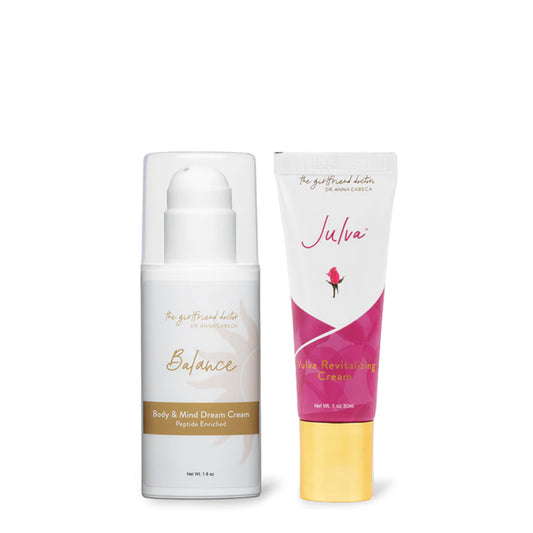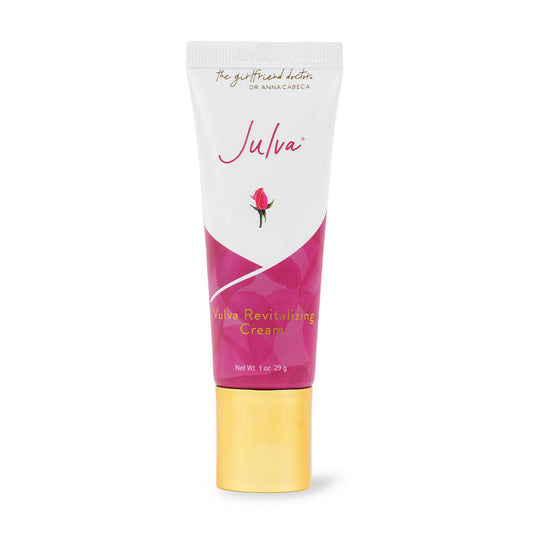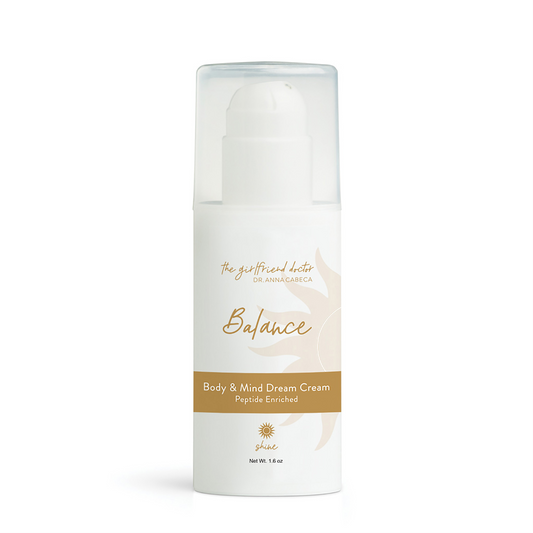Hormonal imbalance is at the root of most of your menopause struggles. But what exactly does that mean? And how can you restore hormonal balance? It’s not as difficult as you may think, but you do need to figure out which hormones are out of balance to fix the problem, right?
Let’s break down hormonal imbalance and talk about what you can do to fix it.

What Is A Hormonal Imbalance?
Hormonal imbalance is a catch-all term that we use to describe what happens when your hormones don’t act the way they should.
Typically, your hormones perform a complex dance, wherein pairs of hormones typically balance, or oppose, one another.
Some examples:
Estrogen and progesterone
Estrogen and testosterone
Cortisol and oxytocin
Insulin and glucagon
When everything is as it should be, each of these hormones keeps the other in check by doing opposite jobs within the body.
What Causes A Hormone Imbalance In Women?
Once perimenopause and menopause start, your hormone levels begin to change.
Your ovaries prepare to cease their reproductive functions, so they don’t need hormones in the same way to ovulate every month. Which means your uterus doesn’t need to shed its lining each month, either.
This is where hormonal imbalance starts.
Usually, with a significant drop in progesterone, a key hormone involved in ovulation.
Without progesterone, estrogen is left unchecked — creating a hormone imbalance.
Other hormone imbalances start to happen during your menopause journey, too. For some women, as estrogen drops, testosterone can take the wheel without its natural foil there to keep it back. A lot of women experience imbalances in their thyroid hormones during this time, too.
How To Tell If You Have A Hormone Imbalance - 11 Signs
Once your hormones start to get out of balance, it can feel like your body is completely out of control.
Some very uncomfortable (and some very weird) things can start to happen. After all, your body is used to having certain levels of estrogen and progesterone circulating freely — in your brain, your skin, and your organs.
And then when these hormone levels change and imbalance becomes the “new normal” it’s a big chance to adjust to.
Here are some of the most common and least common ways to tell if you have a hormone imbalance going on.
Your Brain Doesn’t Function Quite Like It Used To

Your brain reacts to changes in your hormonal balance in some concerning ways. A lot of women experience brain fog, difficulty concentrating and focusing, forgetfulness, and mood swings during this time.
I see a lot of women who are suddenly concerned because they’re having trouble remembering things and their brain doesn’t feel as sharp as it once did. This is thanks to hormone imbalances.
Your Sleep Is…Not Great

Once progesterone levels wane and your hormone imbalance takes over, your sleep can suffer. This can look like waking in the middle of the night, having trouble falling asleep, and waking up at the crack of dawn.
It’s probably not surprising, but this sleep issue makes pretty much everything in your life worse. From the brain farts I mentioned earlier to your energy levels, mood, and weight gain — it’s all exacerbated when you don’t get enough sleep at night.
Your Libido’s Completely Missing

Hormone imbalance is to blame for your missing libido, too. Your body needs all of your hormones working in harmony to make your sex drive work like it should. So when things get out of balance, sex just isn’t a priority anymore.
Your Vagina Feels Super Dry (Which Makes Sex Painful!)

Yes, hormonal imbalance strikes your vagina and vulva, too. It’s the sad truth. This can also add to the libido issue since no one wants to have sex when their lady parts aren’t feeling at 100%.
Your Mood Is Unstable (And That’s Putting It Kindly)

Sometimes, it feels like when hormone imbalances move in, your sanity, calm, and patience move out. That’s because progesterone has a very calming influence in your brain and body.
Without it, you can start to feel anxious, impatient, snappy, and downright angry.
Hot Flashes Are Ruining Your Life

A lot of women going through this time of hormonal transition experience hot flashes, and/or hot flashes at night — which are called night sweats. Hormone imbalance is the culprit here, and it’s enough to drive you crazy.
Of course, when the night sweats get bad, this also affects your sleep, which also affects your energy and sanity.
You’re Outgrowing Your Clothes

Ugh. Weight gain in menopause is something that most of us experience. And it’s no fun, especially because this weight gain also tends to correspond with an increased risk of insulin resistance and heart disease.
This weight gain is a result of a complex hormonal imbalance between estrogen, progesterone, cortisol, and insulin.
You’ve Been Smelling Something Weird Lately

One of the craziest and most unsettling symptoms of a hormone imbalance is “phantom smells,” or phantosmia.
Maybe you suddenly smell cigarette smoke — but no one is smoking nearby. Or you are absolutely sure there’s a revolting sewage smell coming from your bathroom pipes. But you call in your partner, and they smell nothing.
It’s just another trick your hormones are playing on you during menopause.
Your Ears Are Itching Or Ringing

This one’s odd too, but it happens frequently to many women — itching or ringing ears.
This is the same kind of hormone imbalance that causes your vagina to feel dry and itchy. The mucus membranes in your ears miss those once-plentiful hormones, and they let you know about it in the form of itching.
This same hormone imbalance phenomenon can make your tongue feel like it’s burning, and even make your extremities kind of tingly.
The UTIs Just Keep Coming

Similarly to your ears and vagina, your bladder and urethra don’t respond well to a lack of hormones.
Where things used to be strong and able to fend off bacteria easily, a hormonal imbalance means weakness and frequent infections.
Your Hair’s Thinning

Thinning hair is a common and very frustrating result of hormone imbalance. This can happen because your thyroid hormones are out of balance, and it can also happen because androgens are left unopposed by progesterone and estrogen.
This can also lead to unwanted hair growth on your chin, chest, back, and abdomen.
Of course, when the night sweats get bad, this also affects your sleep, which also affects your energy and sanity.
How Do You Fix Hormonal Imbalance?
So, if you’re in menopause and experiencing one of these frustrating symptoms, you’re probably wondering how to fix hormonal imbalances.
Well, it all comes down to giving your body what it needs to make more hormones in alternative ways.
For example, if you give your body bioidentical pregnenolone, it will make more of whichever hormones you’re deficient in that are causing the imbalance to occur.
Similarly, if you give your body extra bioidentical Dehydroepiandrosterone (DHEA), it can be used to make more hormones as well.
It’s all about supporting your body in the proper areas so it learns to adjust and adapt, instead of staying in a state of hormone imbalance.
Vitamins For Hormonal Imbalance
When it comes to support, giving your body ample vitamins is key. For one thing, your body needs certain vitamins and minerals to make hormones. If you’re depleted in vitamins, it can be difficult for your body to have the raw materials it needs to produce hormones efficiently. And, you also need support for your hormone-generating organs like your adrenals.
Here are some of the most crucial vitamins and minerals to focus on when it comes to hormonal imbalance:
Magnesium (especially if sleep is your struggle)
Supplements For Hormonal Imbalance
There are also supplements you can take to help with hormonal imbalance. Again, the idea is you want to support your body’s natural means of producing and distributing hormones throughout the body.
My top hormone imbalance supplement bundle addresses all of the challenges we’ve covered.
If you’re struggling to get things balanced again, this is where I’d start.
It combines bioidentical progesterone with DHEA to give your body exactly what it needs to start balancing things out.
The Hormone Harmony Bundle includes Julva®, my patented vaginal cream that pairs world-class skin barrier support with DHEA, and Balance Cream, my bioidentical progesterone and pregnenolone formula.
When you put these two wonder-workers together, you can support your body in ways that lead to:
Way more comfort down there (‘bye itchy, dry lady parts!)
Easier, more peaceful sleep
Fewer and less intense heat waves that hit you at the worst possible time
What’s even cooler about this kit is that it’s a significant savings over buying these two products separately — and it ships for FREE!
Finally, find Hormone Harmony HERE.
Take The Hormone Imbalance Quiz
Hormonal imbalances really are tough to deal with during menopause, but finding answers doesn’t have to be!
Take my world-famous Hormone Imbalance Quiz here and find out where to start when it comes to fighting this battle.








